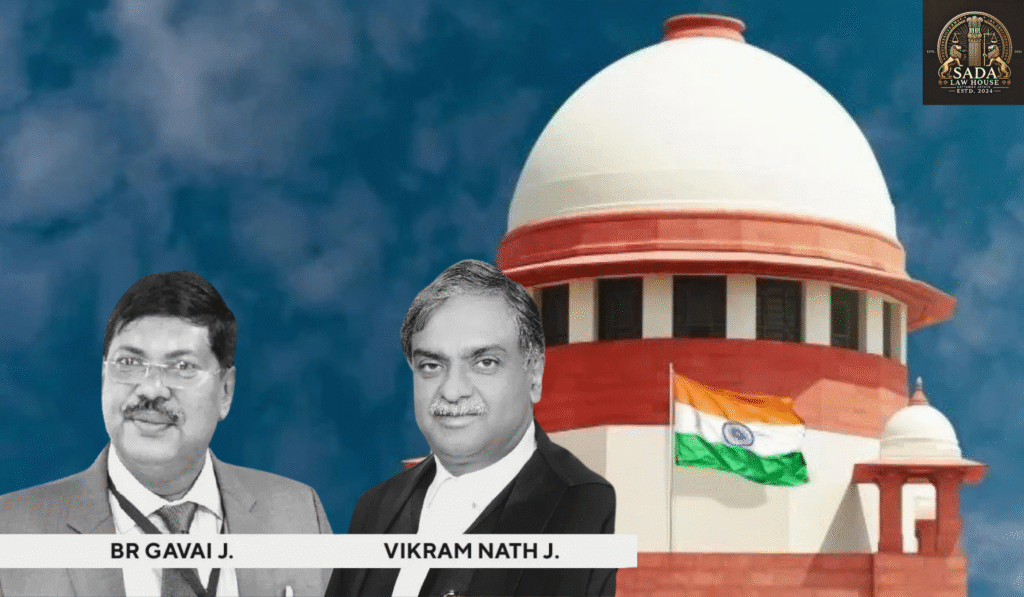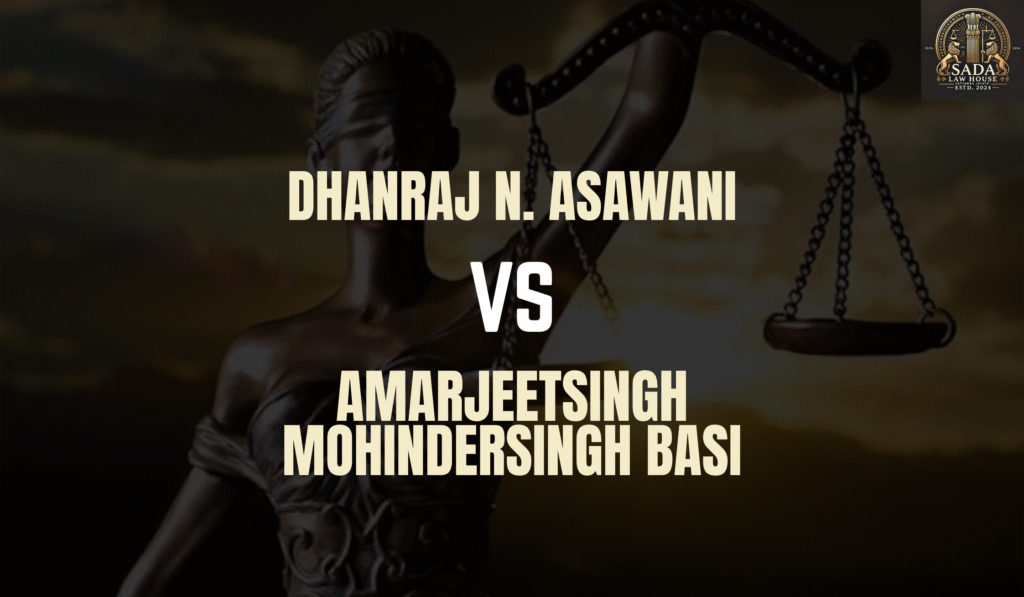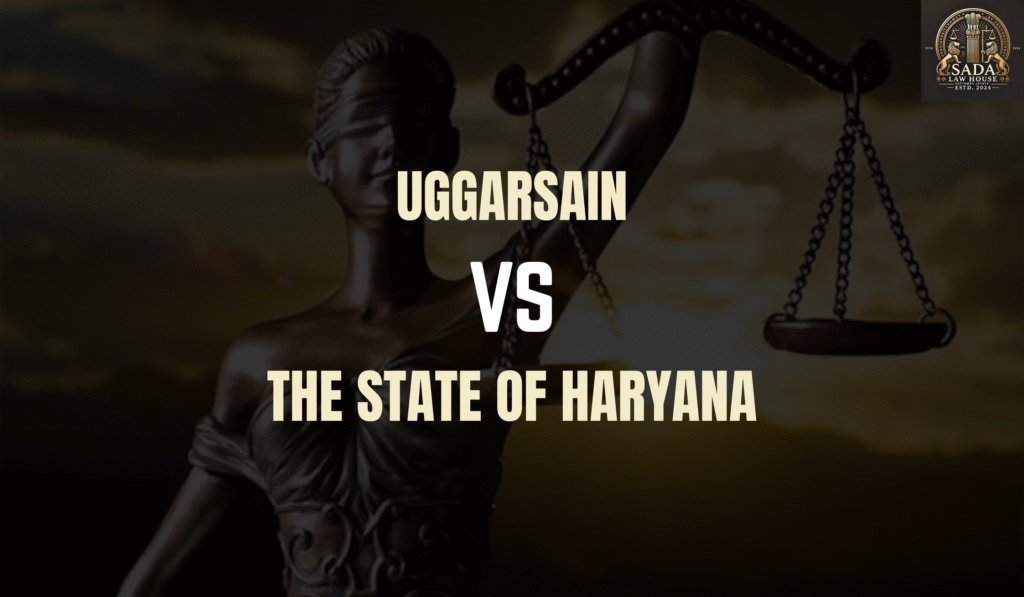Rahul Ganpatrao Sable v. Laxman Maruti Jadhav (Dead) through LRs & Ors. – Supreme Court Enhances Motor Accident Compensation (2023)
Trending Today Santhosh Maize & Industries Limited v. State of Tamil Nadu & Anr. (2023) – Supreme Court on Tax Classification of Maize Starch & Retrospective Clarifications LEGAL JOB OPPORTUNITY AT JM FINANCIAL HOME LOANS LEGAL INTERNSHIP OPPORTUNITY AT VISTAAR FINANCE LEGAL INTERNSHIP OPPORTUNITY AT FORESIGHT LAW OFFICES INDIA, DELHI Pradeep v. State of Haryana (2023) – Supreme Court Acquits Accused, Cautions on Sole Testimony of Child Witness Rahul Ganpatrao Sable v. Laxman Maruti Jadhav (Dead) through LRs & Ors. – Supreme Court Enhances Motor Accident Compensation (2023) Dhanraj N. Asawani v. Amarjeetsingh Mohindersingh Basi & Ors. (2023): Right of Shareholder to Initiate Criminal Proceedings in Co-operative Bank Scam Uggarsain v. State of Haryana – Supreme Court on Uniformity and Proportionality in Sentencing for Group Offences S. Narahari v. S.R. Kumar – Supreme Court Refers Maintainability of Second SLP after Withdrawal to Larger Bench (2023) Ranjeet Singh v. State of Chhattisgarh – Supreme Court Acquittal in Murder Case for Unreliable Eyewitness Testimony (2023) Rahul Ganpatrao Sable v. Laxman Maruti Jadhav (Dead) through LRs & Ors. – Supreme Court Enhances Motor Accident Compensation (2023) Justice B.R. Gavai and Justice Vikram Nath 05 July 2023 Headnote The Supreme Court held that in cases of severe permanent disability resulting in loss of livelihood, compensation must be calculated on the basis of full functional disability without deductions in income while applying the multiplier method. The Court enhanced compensation under various heads, ensuring just and fair relief to the victim. Introduction The case Rahul Ganpatrao Sable v. Laxman Maruti Jadhav (Dead) through LRs & Ors., decided by the Supreme Court of India on 5 July 2023, concerns a motor vehicle accident compensation claim under the Motor Vehicles Act, 1988. The appellant, who suffered 85% permanent partial disability in a road accident, sought enhanced compensation. The judgment clarifies the proper application of the multiplier method, emphasizing that deductions should not apply when functional disability leads to complete loss of earning capacity. Facts of the Case Rahul Ganpatrao Sable, a 29-year-old welder, sustained grievous injuries in a 2011 road accident, resulting in 85% permanent disability. His disability left him unable to continue his skilled profession, effectively rendering him unemployable. The Motor Accident Claims Tribunal (MACT) awarded reduced compensation by applying deductions. The Bombay High Court upheld the Tribunal’s order. Aggrieved, the appellant approached the Supreme Court, contending that the lower courts had undervalued his loss of livelihood and economic dependency. Issue of the Case Whether the appellant, suffering 85% permanent disability that functionally amounts to 100% loss of earning capacity, is entitled to enhanced compensation without deductions in monthly income under the multiplier method? Petitioner’s Arguments Disability of 85% equated to functional disability of 100%, leaving him unemployable as a welder. The High Court wrongly applied deductions to income, contrary to precedents like Raj Kumar v. Ajay Kumar. Compensation must reflect total loss of earning capacity. Sought additional amounts for medical expenses, pain and suffering, loss of amenities, and future livelihood. Respondent’s Arguments Disability was only 85% in the right lower limb, not 100%. The appellant could still pursue alternative less strenuous work. Compensation already covered medical costs and non-pecuniary damages. Tribunal and High Court exercised proper discretion based on evidence. Judgment The Supreme Court set aside the lower courts’ orders, holding that: Functional disability equated to 100% loss of earning capacity. No deductions in income should apply when the victim is rendered completely unemployable. Compensation recalculated on full pre-accident monthly income of ₹15,000, with the correct multiplier of 18. Enhanced awards were granted under multiple heads, including: Pain and suffering Future medical expenses Attendant charges Loss of marriage prospects Loss of amenities The Court reaffirmed that just and fair compensation must consider both economic and human suffering. Conclusion The judgment in Rahul Ganpatrao Sable v. Laxman Maruti Jadhav (Dead) through LRs & Ors. underscores that compensation in motor accident claims must reflect full functional disability and loss of livelihood. The ruling strengthens victim-centric interpretation of the Motor Vehicles Act, ensuring that seriously injured claimants receive compensation that secures dignity, sustenance, and justice. Leave a Reply Cancel Reply Logged in as Sada Law. Edit your profile. Log out? Required fields are marked * Message* Case Laws Santhosh Maize & Industries Limited v. State of Tamil Nadu & Anr. (2023) – Supreme Court on Tax Classification of Maize Starch & Retrospective Clarifications Sada Law • August 30, 2025 • Case law • No Comments Pradeep v. State of Haryana (2023) – Supreme Court Acquits Accused, Cautions on Sole Testimony of Child Witness Sada Law • August 30, 2025 • Case law • No Comments Rahul Ganpatrao Sable v. Laxman Maruti Jadhav (Dead) through LRs & Ors. – Supreme Court Enhances Motor Accident Compensation (2023) Sada Law • August 30, 2025 • Case law • No Comments 1 2 3 … 5 Next » Rahul Ganpatrao Sable v. Laxman Maruti Jadhav (Dead) through LRs & Ors. – Supreme Court Enhances Motor Accident Compensation (2023) Justice B.R. Gavai and Justice Vikram Nath 05 July 2023 Headnote The Supreme Court held that in cases of severe permanent disability resulting in loss of livelihood, compensation must be calculated on the basis of full functional disability without deductions in income while applying the multiplier method. The Court enhanced compensation under various heads, ensuring just and fair relief to the victim. Introduction The case Rahul Ganpatrao Sable v. Laxman Maruti Jadhav (Dead) through LRs & Ors., decided by the Supreme Court of India on 5 July 2023, concerns a motor vehicle accident compensation claim under the Motor Vehicles Act, 1988. The appellant, who suffered 85% permanent partial disability in a road accident, sought enhanced compensation. The judgment clarifies the proper application of the multiplier method, emphasizing that deductions should not apply when functional disability leads to complete loss of earning capacity. Facts of the Case Rahul Ganpatrao Sable, a 29-year-old welder, sustained grievous injuries in a 2011 road accident, resulting in 85% permanent disability. His disability left him unable to continue his



